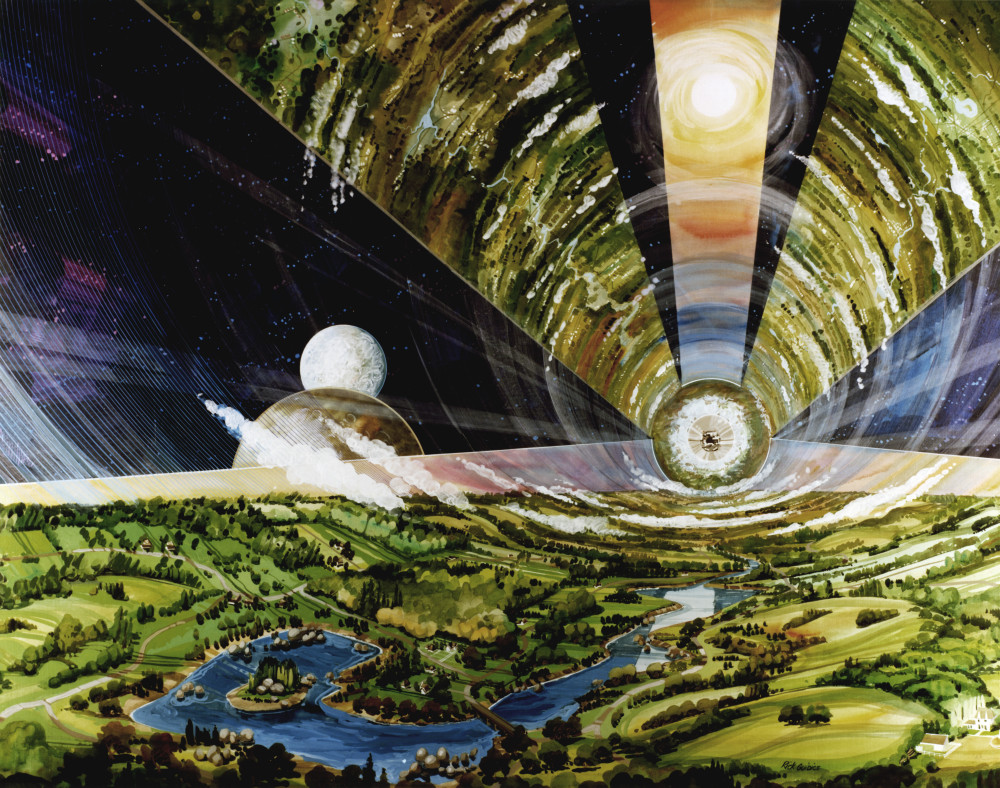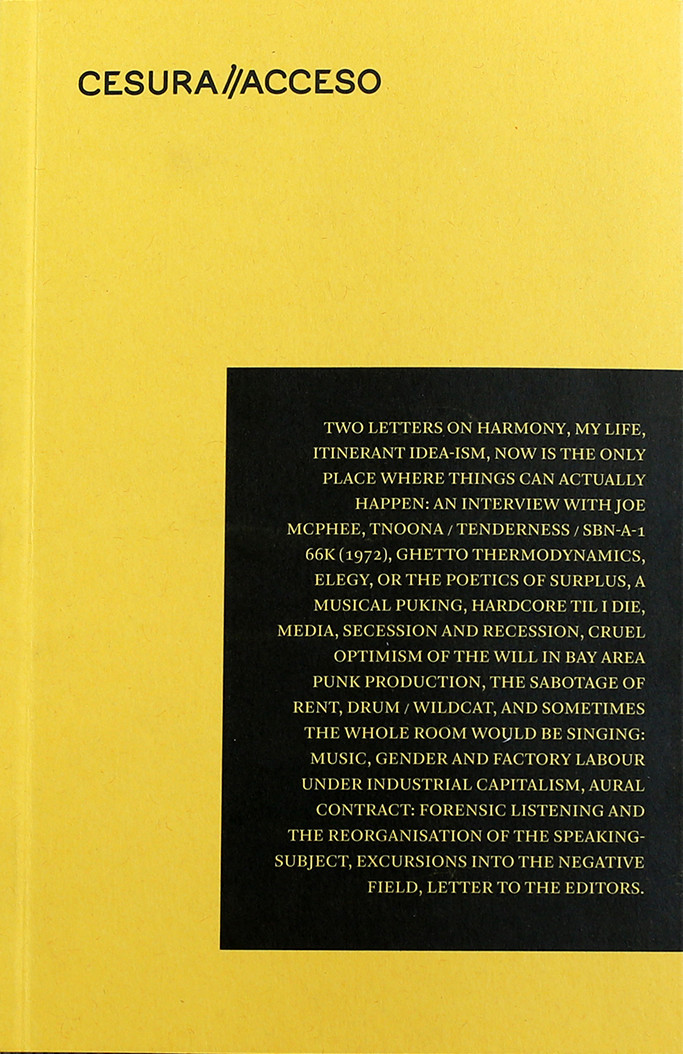Cultural Anthropology: Infrastructure (2012)
Filed under journal | Tags: · anthropology, city, infrastructure

“Infrastructures are the systems that enable circulation of goods, knowledge, meaning, people, and power. In Splintering Urbanism, Stephen Graham and Simon Marvin argue that we can see the role of public infrastructures and new technologies in facilitating the mobility of people, goods, and utilities when old forms decay. As Brian Larkin notes, the ongoing life of these structures and networks themselves create new social collectivities. With more and more scholars looking to infrastructure as an object of study, anthropologists are positioned to document and witness the role of infrastructures, both technological and human, in cultural life. […]
Cultural Anthropology has published many articles that present and analyze situations where people create and interact with networks that facilitate flows of value. Rather than considering infrastructure to be something with static effects, anthropological approaches to the study of infrastructure look for its construction and maintenance through everyday practices in particular ethnographic contexts. Here we have brought together six articles published in CA that have contributed to the emergent anthropology of infrastructure. […]
To enrich our understanding of the selected articles, authors Nikhil Anand, Julia Elyachar, Daniel Mains, Jonathan Bach, and Filip De Boeck have offered new commentary on their works. Additionally, AbdouMaliq Simone, a scholar whose study of “people as infrastructure” has led the way in this emergent area of inquiry, composed an essay reflecting on this collection.” (from the Introduction)
Edited by Jessica Lockrem and Adonia Lugo
Publisher Society for Cultural Anthropology, 2012
ISSN 1548-1360
View online (various formats, updated on 2019-7-8)
Comment (0)Glass Bead, 1: Site 0: Castalia, the Game of Ends and Means (2016) [English/French]
Filed under journal | Tags: · affect, art, mind, philosophy, theory

“The first issue of this journal, as well as Glass Bead’s project at large, is directed towards rethinking art as a mode of rational thought. It starts from the assumption that any claim concerning the efficacy of art—its capacity, beyond either its representational function or its affectivity, to make changes in the way we think of the world and act on it—first demands a renewed understanding of reason itself.
The site on which this issue focuses is Castalia, the fictional province imagined by Hermann Hesse in The Glass Bead Game (1943). Set in Central Europe some five hundred years in the future, Castalia hosts a peculiar society entirely dedicated to the pursuit of pure knowledge. Mobilising Castalia as an equivocal image, at once archetype of modern universalism and fortress delegitimized by its own enclosure, the aim of this issue is to revisit and transform the Castalian model for the unification of reason.
Site 0: Castalia, the game of ends and means is structured around partially overlapping charts. These charts are meant to figure specific routes drawn in the site by the contributors to this issue.”
With contributions by Peter Wolfendale, Guerino Mazzola, Andrée Ehresmann, Mathias Béjean, Ray Brassier, Gabriel Catren, Anselm Franke, Benedict Singleton, Keller Easterling, Giuseppe Longo, Martin Holbraad, Eduardo Viveiros de Castro, Tristan Garcia, Fernando Zalamea, Deneb Kozikoski Valereto, Olivia Caramello, Tarek Atoui, Linda Henderson, Freeman Dyson, Alex Williams, Holly Herndon, Mat Dryhurst, Laboria Cuboniks, and Amanda Beech.
Edited by Fabien Giraud, Jeremy Lecomte, Vincent Normand, Ida Soulard, and Inigo Wilkins
Publisher Glass Bead, February 2016
HTML, PDFs (English)
HTML, PDFs (French)
single PDF (English, 16 MB, updated on 2017-12-6)
See also Issue 2
Cesura//Acceso: Journal for Music, Politics and Poetics, 1 (2014)
Filed under journal | Tags: · music, music criticism, music history, poetics, politics

“Publishing a mix of commissions and open submissions, Cesura//Acceso asks what it could mean to practice politics through music or think music through politics. Featuring contributions from musicians, writers, artists, theorists and poets, Cesura//Acceso explores, unfolds and encourages interconnected spaces of experimental thought and practice in politics, music and poetics.
It’s about: Cruel optimism in Bay Area punk, DJ Rashad and the ghetto thermodynamics of juke, the 1994 Criminal Justice Bill, dole autonomy and rave, Mary J Blige, Lyn Hejinian and lives un-lived, the poetics of turfing, forensic speech analysis, musings on Don Cherry in London, singing and factory work, the abject history of happy hardcore, poetry by Howard Slater and Martin Glaberman, an interview with Joe McPhee, incantations to de-harmonise the world, puking music and more…”
Contributors: Sean Bonney, Anne Boyer, Seymour Wright, Stevphen Shukaitis, Howard Slater, Dhanveer Singh Brar, Commune Editions, Alberto Savinio, Kev Nickells, Anthony Iles & Eve Lear, Johanna Isaacson, Matteo Pasquinelli, Martin Glaberman, Emma Robertson, Michael Pickering & Marek Korczynski, Lawrence Abu Hamdan, Simon Yuill, Iain Boal.
Published in London, Oct 2014
Creative Commons Attribution-ShareAlike 4.0 International License
ISBN 9780993024603
ISSN 2056-5631
253 pages
See also the journal’s Soundcloud page.
Comment (0)
